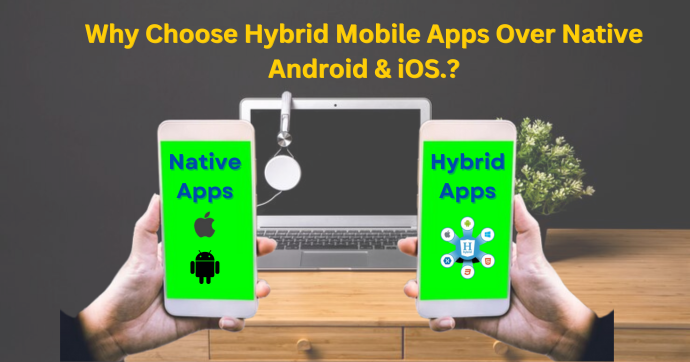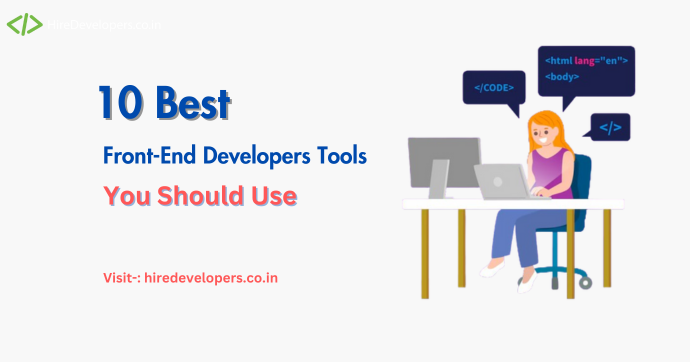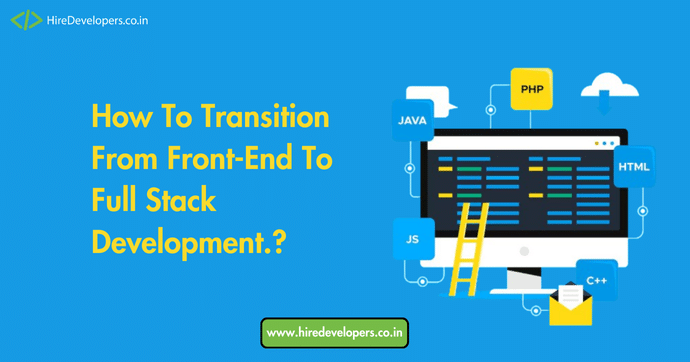December 1, 2024
Why Choose Hybrid Mobile Apps Over Native Android & iOS.?

With the rapid growth of mobile technology, businesses often face the dilemma of selecting the best approach for mobile app development. Today, the choice largely boils down to hybrid mobile app development or building separate native apps for Android and iOS. Hybrid mobile apps, which work seamlessly across multiple platforms, have quickly gained popularity. In this blog, we’ll dive into the benefits of choosing hybrid mobile apps over native ones and why they’re often the smarter choice for businesses aiming to maximize their mobile reach.
- 1. What Are Hybrid Mobile Apps?
- 2. Cost-Effective Solution
- 3. Faster Development Time
- 4. Consistent User Experience Across Platforms
- 5. Easy Maintenance and Updates
- 6. Offline Support
- 7. Improved Performance and Flexibility
- 8. Easy Integration with Third-Party Plugins
- 9. Broader Market Reach
- 10. Ideal for MVP Development
- Final Thoughts: Why Hybrid Apps are a Smart Choice
1. What Are Hybrid Mobile Apps?
Hybrid mobile apps are applications that blend elements of both native and web applications. Unlike native apps, which are designed specifically for either iOS or Android, hybrid apps are built to work on both platforms with a single codebase. This cross-platform mobile app’s capability offers businesses an efficient way to reach a larger audience without duplicating efforts. Additionally, with hybrid development frameworks, it’s easier to make changes or introduce new features without the extensive reworking that may be required with native apps.
2. Cost-Effective Solution
Developing native apps for both Android and iOS often requires hiring separate teams or developers with expertise in each platform, which can become costly. However, with hybrid app development, a single development team can create one app that works on both operating systems. This not only reduces development costs but also simplifies the management of the app, as updates and maintenance are handled in one place. For small to medium-sized businesses with limited budgets, hybrid apps offer a highly attractive cost-effective solution.
3. Faster Development Time
Speed is a major advantage of hybrid mobile app development. Since hybrid apps are built with a single codebase, developers can create and launch the app much faster compared to native apps. This quick turnaround is particularly beneficial for startups and companies looking to release their products quickly and gain a foothold in the market. This is made possible through frameworks like React Native, Flutter, and Ionic, so when you hire andoird app developer this allows them to write code that can run on multiple operating systems without having to build separate versions of the app for each platform.
4. Consistent User Experience Across Platforms
One of the challenges with native apps is ensuring a consistent user experience across both Android and iOS. Hybrid apps solve this issue by providing a unified look and feel, ensuring that users across different devices have a similar experience. By using a single codebase and standard UI elements, businesses can ensure that branding, design, and functionality remain consistent, no matter the platform. This approach helps build brand trust and makes the app easier to navigate, which can enhance user satisfaction.
5. Easy Maintenance and Updates
Maintaining native apps can be challenging and time-consuming since updates need to be implemented separately for each platform. With hybrid apps, on the other hand, updates are rolled out from a single codebase, simplifying the process significantly. When an update is needed, hire ios developer who only needs to make changes once, and these changes can be pushed to both Android and iOS users simultaneously. This ease of maintenance is one of the most significant benefits of hybrid app development, as it helps keep the app up-to-date without the added complexity and costs associated with native apps.
Need a skilled developer for your project? We’re here to assist! Hire Developer
6. Offline Support
Offline functionality is essential for enhancing user experience, especially for apps that need to work reliably in areas with limited connectivity. Hybrid apps are generally better suited to provide offline support because they can store data locally on the device. This feature allows users to access basic functionalities even when they’re offline, offering greater flexibility and making the app more reliable. For instance, users can still view previously loaded content, which can be a crucial advantage for apps used in remote or low-network areas.
7. Improved Performance and Flexibility
Gone are the days when hybrid apps were seen as slower or less capable than native apps. Thanks to advances in hybrid frameworks like Flutter and React Native, hybrid apps can now perform almost as well as their native counterparts. These frameworks allow for smoother animations, faster loading times, and enhanced interactions that make the app feel responsive and professional. Additionally, because hybrid apps rely on a single codebase, developers have more flexibility to add features or adapt to new market trends quickly.
8. Easy Integration with Third-Party Plugins
Hybrid app frameworks support third-party plugins, which allows for easy integration with features such as GPS, camera, payment systems, and more. These plugins make it possible for hybrid apps to access device functionalities that were previously only available to native apps. For businesses, this means they can offer users advanced features and a fully integrated experience without the restrictions that come with certain native-only functionalities. This enhanced capability can help businesses stay competitive by providing users with the latest and most useful features.
9. Broader Market Reach
With hybrid mobile apps, businesses can simultaneously target both iOS and Android users, reaching a broader audience without the need for multiple app versions. This is particularly beneficial for businesses aiming to build a strong presence across different markets. With a hybrid approach, you don’t have to worry about leaving out potential users based on their device preference. A single app that works on both platforms gives your business an advantage in reaching as many users as possible with a streamlined, cohesive experience.
10. Ideal for MVP Development
Hybrid apps are an excellent choice for businesses looking to launch a Minimum Viable Product (MVP). With an MVP, the goal is to release a product with just enough features to attract early adopters and gather feedback for future development. Since hybrid apps can be built faster and at a lower cost, they are a practical choice for startups and small businesses testing new ideas. An MVP hybrid app enables companies to enter the market quickly, gather essential user feedback, and then decide on further app improvements or additional platform-specific features if necessary.
Final Thoughts: Why Hybrid Apps are a Smart Choice
Mobile app development offers numerous advantages over native development then hydrid, especially for businesses looking to make the most of their resources while reaching a broad audience. Hybrid apps provide a more efficient and cost-effective solution, allowing for faster development, easier maintenance, and a consistent user experience across platforms. They’re also ideal for companies looking to release an MVP, as they enable quicker market entry without compromising performance or usability.
Whether you’re aiming to build a large-scale application or testing a new product idea, choosing mobile app development can help you achieve your goals with fewer complications and a greater chance of success.
Must Know-: Must Have Skills To Look For When Hiring Software Developers in 2024
Related Articles-:
- Top 10 Platforms for Recruiting Developers to Propel Your Startup Forward in 2024
- The Future of Software Development: Trend to Watch in 2024
- Hiring Top Software Developers: Why Talent Matters
- Why Laravel Development in India is a Smart Choice: 10 Key Terms Explained?
- Hire Dedicated Python Developers Your Boss Wants to Know





